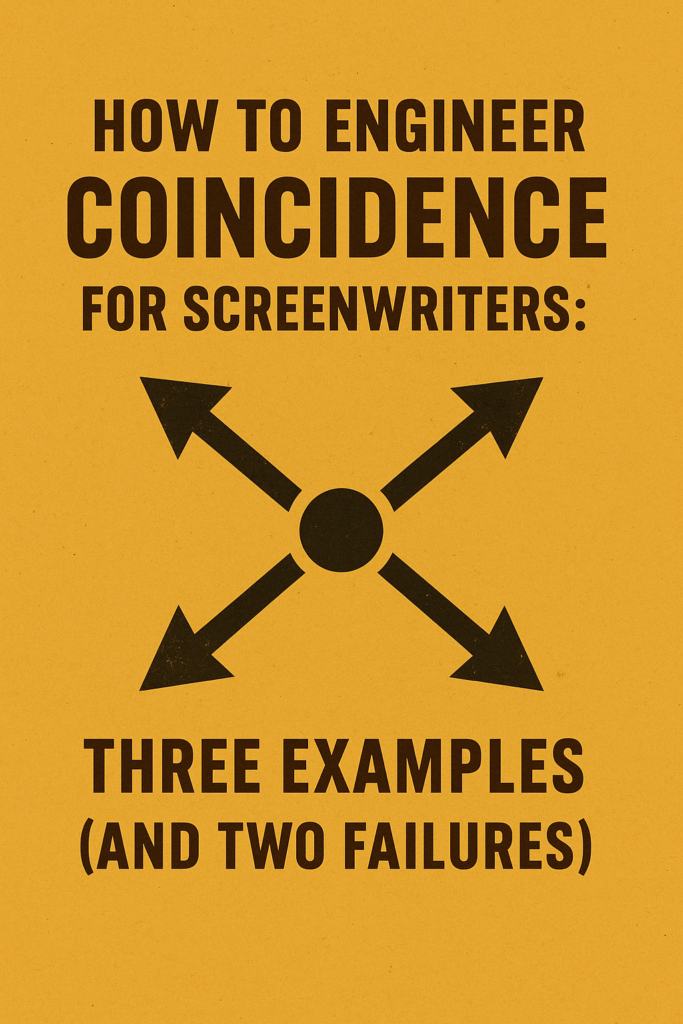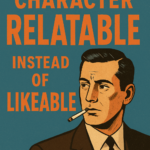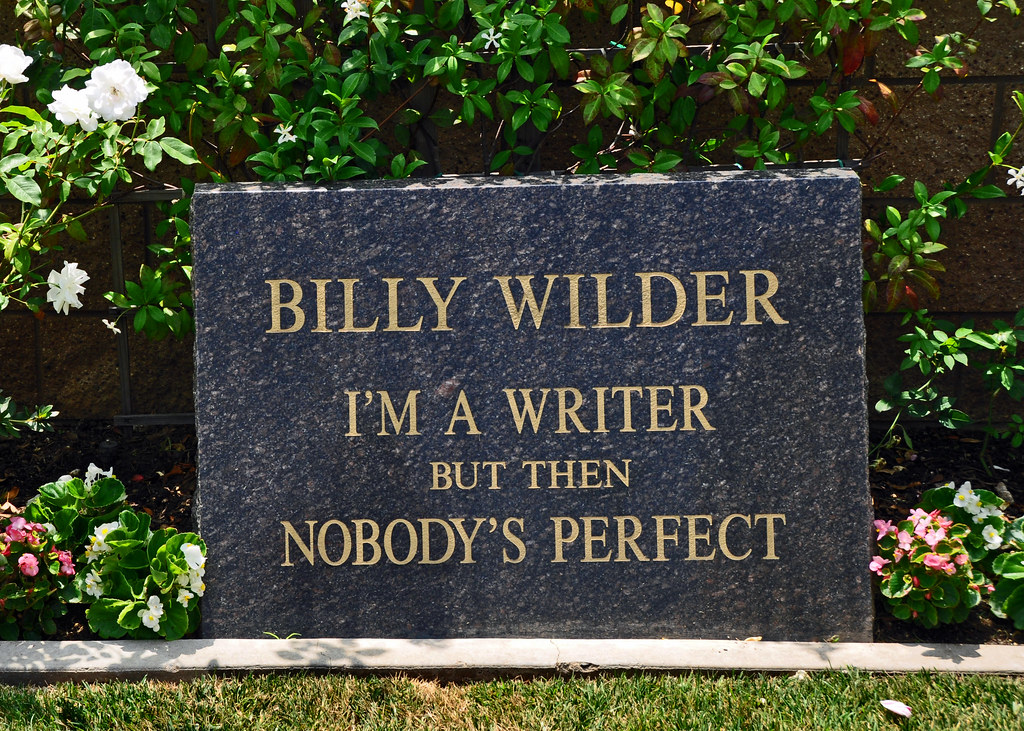How to Engineer Coincidence for Screenwriters: Three Examples (and Two Failures)

Contrary to popular belief, you want coincidence in your screenplay.
Recall one of Pixar’s 22 Rules of Storytelling:
“Coincidences to get characters into trouble are great; coincidences to get them out of it are cheating.”
Think about it: how many great films would exist without some sort of coincidence at the very beginning? In some sense, the whole point of a screenplay is that coincidental things happen. You’re seeing things that are out of the ordinary occurring.
If we take the dictionary definition of “coincidence,” it is roughly “two things happening at the same time, especially in a way that is unlikely or surprising.” Of course this pairing of things needs to be out of the ordinary; otherwise the story wouldn’t be interesting enough to warrant a film. That is, the stakes wouldn’t be high enough to keep our attention.
Look at the mistaken identity that kicks off North by Northwest. Look at the chance encounter that gives practiced grifter Ripley the chance to take his punt in the first moments of The Talented Mr. Ripley. Look at the “head cheese” hitchhiker that the gang just happens to pick up in The Texas Chain Saw Massacre.
Without these moments, these films would not of course fully play out.
So what’s so wrong with the idea of coincidence?
Unpacking Pixar’s Definition
What we have to worry about, usually, is situations where there is coincidence later in the script. You’re basically forgiven a coincidence as the Inciting Incident, because, well, what the hell else is the Inciting Incident if not coincidence?
The real problem is situations where we are (figuratively) expecting a god to come down from the rafters and sort shit out for us. The heroine is pinned down by the rapist and just so happens to find a shotgun within arm’s reach. Spock is exiled on some random-ass ice planet where he happens to run into Leonard Nimoy who seems curiously full of life advice. “Oh, it was all actually a story I made up” like in Atonement.
There are any number of these things in particularly decent films, and you’ll find infinitely more in B-movies. That’s why there’s a culture of jeering at such films. Just watch Mystery Science Theater 3000 or just about any scene in The Room and you’ll see what I mean. On the fun level, you can point out where problems get solved “just because” or the right tool just conveniently lands in someone’s lap.
When you’re trying to take a film seriously, however, this disrupts the flow. It’s a longstanding problem in drama. Even the ancient Greeks had a term for it (deus ex machina, if you haven’t figured that out already).
How to Cue Up Coincidence for Screenwriters: Make the Audience Gag for It – Charlie and the Chocolate Factory
(Note that here I’m talking about the book, not the film; the film’s version is a bit more compacted and, arguably, less effective.)
There are definitely things that happen later that can be coincidental, but we have to engineer them so they seem more realistic. Again, chance things can happen, which is basically the nature of film. However, we have to have some sense that they are “earned.”
For example, if a man needed money and simply found a lottery ticket on the street, that would be sort of shit.
However, in Charlie and the Chocolate Factory, we watch Charlie pursue the Golden Ticket. Given his destitute background–he can’t even really afford a chocolate bar to get the ticket–we don’t have much faith in his chances. Charlie, however, has faith.
Yet… Charlie finding the gold ticket in his chocolate bar is a definite coincidence. The stars have to align; it’s not as if he cheated to get the ticket. Yes, it’s unlikely, but it matches the story. We are cued up to expect this because we see Charlie’s home situation and we want something to change for him.
We hope that Charlie will get the ticket. We are pleased when he does.
Not only that, but we also watch him try to win the ticket. He only succeeds on the third attempt. We live through his crushing failure, coming along for the ride. Over and over, the audience is primed to celebrate when he finally wins. Even when he finds money in the snow to buy the final, winning chocolate bar, we are invested in Charlie’s situation.
Yes, it is perhaps convenient that Charlie finds money in the snow–finding the money in the gutter is a bit of an eye-roll moment in the film version–but it’s not totally implausible that one finds money on the street; it’s not like he found the damn ticket on the street.
Remember, to make coincidences later in a film work, the coincidence has to feel earned. We require 1) a desperate need for a solution, and 2) a reasonable, if probabilistically unlikely, explanation for how it is possible.
This might be reasonable in real-world terms like finding money on the street; otherwise, it might be planted by the writer as a cast-off reference earlier in the text.
Convenience, not Coincidence: Example 1 – It’s Raining Supreme Beings
Perhaps a better term, then, for the things that are “bad coincidences” would be convenience. That is, things that make the plot work but aren’t really earned.
Take, for example, any one of a number of setups in The Fifth Element.
We can let go Leeloo falling through Dallas’ cab as an Inciting Incident. However, where things get a bit hairy is that Dallas is ex-special forces. Even worse, he’s just about to be taken out of retirement to go to Fhloston to collect the stones. None of this has to do with Leeloo, because no one knows that she has landed in the back of his cab.
Then the government cover-up for Dallas’ trip to Fhloston–as if the government needs to cover its tracks like this–is the radio contest that gives Dallas two (!?) tickets to Fhloston. Very convenient that they would book passage for one orange-haired Supreme Being–without even knowing at this point that she exists.
Now of course the movie is so loud and fast that we are simply along for the ride and let these sort of questions slip. It’s still a great watch–just don’t look too close at the logic or the whole thing might fall apart!
Coincidence, Not Convenience: Example 1 – No Good Deed Goes Unpunished
The mirror, the mirror in The Apartment. An example of beautiful “show, don’t tell” communication.
Baxter finds the broken compact mirror in his apartment and gives it to Sheldrake to give to the woman Sheldrake was using Baxter’s apartment to schtup. Baxter, however put-upon, is doing some sort of a good deed here.
The problem arises when, during the Christmas party, Fran hands Baxter the mirror to model his new hat.
Neither of them has the full story: Fran has been dirtying Baxter’s sheets without realizing whose bed it is; Baxter didn’t know whom the compact belonged to until Fran–his unrequited office crush–hands it to him.
Convenience, Not Coincidence: Example 2 – Random Place, Right Droids
Luke buys the right droids in Star Wars.
Sure, Threepio encourages Luke to buy Artoo, but how those droids ended up in that rolling market in the first place… or how Luke’s uncle’s farm needed droids at that moment… or how the market happened to be rolling through at that precise time… or how Luke actually managed to find the message by tinkering (it’s not like Threepio did it)… or how, for that matter, Obi-Wan happened to be living a couple of dunes away…
First things first, I get that this is the Inciting Incident and we’re allowed a little bit of unexplained coincidence.
The problem here is that there’s a lot of unexplained coincidence. I’m definitely not the first person to note this. If you think I’m being picky here, let me introduce you to Skippy the Jedi Droid.
Look, I get that Star Wars is fantasy, etc. but this is egregiously convenient–to the point that it’s actually convenience, not coincidence.
Coincidence, Not Convenience: Example 2 – No Killin’? Let’s Get Some Donuts
Butch runs into Marsellus–literally, in fact–outside the donut shop in Pulp Fiction.
Tarantino is a master of coincidence that totally works. This is an example where it seems surprising because we’ve just been through the horror of watching Vincent die.
However, when you think about it for a second, all the pieces line up. Why is Marsellus there? Because he was with Vincent searching for Butch. It’s just that they got bored because Butch wasn’t home, and Marsellus left Vincent to guard the roost while he went out for some donuts.
No killin’ gonna happen? Time for a cherry glaze and some coffee. Obviously.
So it makes total sense that when Butch flees the apartment after killing Vincent that he would see Marsellus on the street. The only convenient thing is that they would clock each other–and even that is reasonable given the tense energy of the scene.
Notice how a lot of things fit together properly–the timing of Marsellus crossing the street, for example–but it’s all set up because the story backs it up: given the circumstances, it is plausible once you start to pick it apart.
Conclusion
Of course coincidence means something is unlikely. That’s part of the definition.
But, really, part of the definition of film–unless it’s a mumbly French melodrama–is that some unlikely shit is bound to happen.
The key for you, as a writer, is to make sure that it’s cued up properly.
That can be done in a couple of ways:
First, as in Charlie and the Chocolate Factory, you can make the audience beg for the coincidence so that they’re relieved when it happens.
Second, and potentially more complicated, you can follow Tarantino: get the backstory straight enough that the coincidence is actually something likely to happen, but unfortunate.
The audience, of course, doesn’t need to know all of this–it might seem extremely surprising to them–but the secret is that all the pieces work behind the scenes. It’s all in what the writer decided to leave out.
The key is that when you start to piece everything together, you see that it actually all works.
Now it’s time to try for yourself.
Exercises — Coincidence for Screenwriters
Exercise 1: The Lottery Ticket Swap
Write a scene where your protagonist needs money.
First draft: give them a convenient, not coincident situation (e.g., they find a winning lottery ticket).
Second draft: re-engineer it into an “earned coincidence” (e.g., they find something plausible because of their unique backstory or setup you’ve already planted).
Compare the effect on believability.
Exercise 2: Convenience Audit
Take five scenes from your current draft.
For each, ask: Does something happen just because? Could an audience yell “convenient!” here?
If yes, brainstorm two alternate setups that make the moment either (a) foreshadowed or (b) inevitable given character choices.
This is how you create coincidence for screenwriters.
Exercise 3: Make Them Beg for It
Write a short, 2–3 page scene where the audience is desperate for a character to get a break, like Charlie and the Golden Ticket.
Withhold the payoff until the very last beat, then deliver the coincidence.
The key: plant enough frustration and desire that the “unlikelihood” feels like catharsis rather than a cheat.







